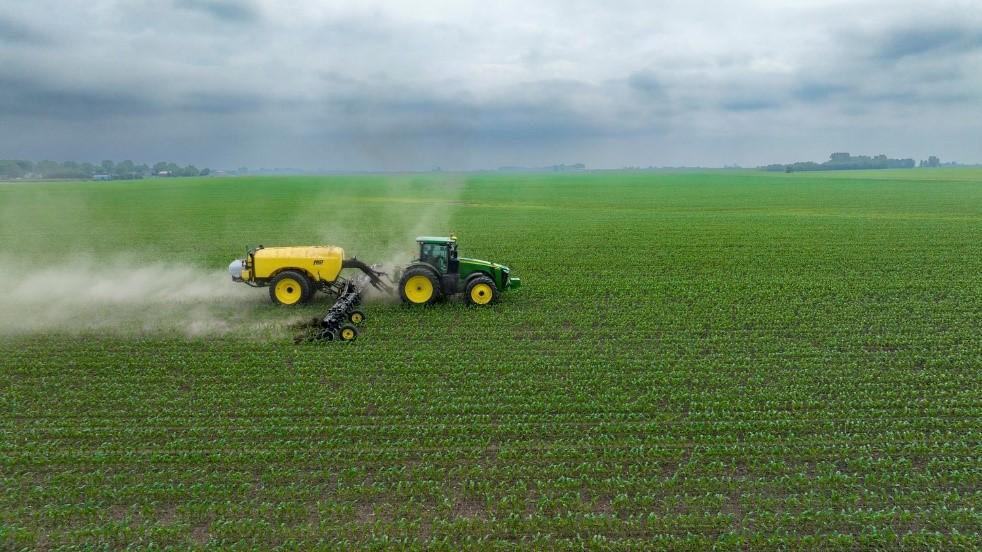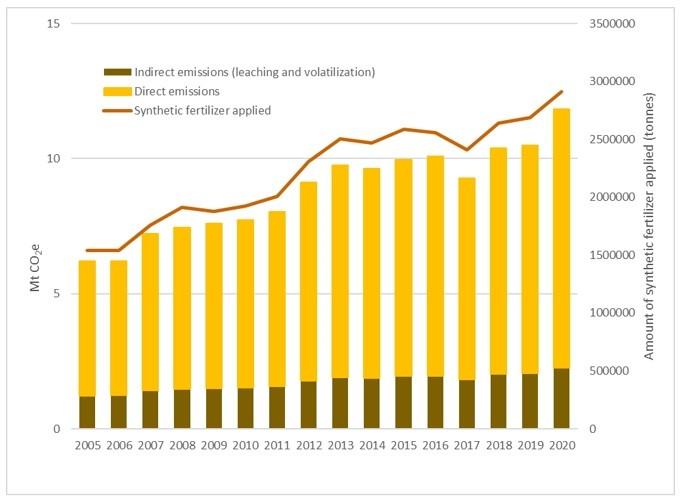Fertilizer Regulations Canada
By: Deeksha Chahal, JUNIOR REGULATORY AFFAIRS ASSOCIATE, email
Understanding Fertilizers, Supplements, and Micronutrients
Fertilizers
Fertilizers are the lifeblood of agriculture, containing essential nutrients like nitrogen, phosphorus, potassium, and many more. As a plant nutrient, they are vital for plant growth and crop yield optimization.
Supplements
Supplements on the other hand, focus on enhancing soil quality and fostering healthier plant development. A supplement is any substance or mixture of substances, other than a fertilizer, that is manufactured, sold or represented for use in the improvement of the physical condition of soils or to aid plant growth or crop yields.
Micronutrients
Micronutrients, such as boron, chlorine, copper, iron, manganese, molybdenum, and zinc, play a crucial role in nurturing plants to their fullest potential.
Even secondary nutrients like calcium, magnesium, and sulfur have their place in the world of fertilizers too.
What do micronutrients, fertilizers and supplements have in common? They are all regulated in Canada.
Fertilizers Regulations in Canada
Fertilizer regulations in Canada are primarily governed by the Canadian Food Inspection Agency (CFIA). (It is important to note this is a different set of regulations than those governing pesticides/pest control products. To learn more about the Pest Control Products Act, check out What is a pesticide next).
The CFIA completes pre market assessments to ensure the safety, quality, and proper labelling of fertilizers sold and used in Canada.
Before any fertilizer product can be sold in Canada, it must be registered with the CFIA. Additionally, one must obtain a license to import, manufacture or distribute fertilizers in the Canadian market. Proper product labeling is a critical aspect of fertilizer regulations in Canada.
Labels must contain essential information such as the guaranteed analysis, product name, net weight, brand name, manufacturer or distributor details, intended use, and safety precautions. Accurate and informative labelling is crucial for consumers and professionals when selecting the right fertilizer for their needs.
Fertilizer Submissions
Here is a review of the different types of fertilizer submission that your company may be required to make.
Brand new registration (Level I, II, III)
Level I, II and III registrations are typically for new fertilizers that have not been previously marketed in Canada. These submissions are subject to comprehensive data requirements, including details on the product’s composition and evidence that safety standards have been met.
Renewal (re-registration)
Under the amended fertilizers regulations, CFIA mandates that all fertilizer registrations are subject to renewal every five years. Any updates or changes must be documented and submitted for approval.
Major amendments
Major amendments are required for significant changes made to a registered fertilizer. This can include alterations to the product’s composition, labelling, or approved use.
Minor Amendments
Minor amendments encompass smaller changes that may not significantly affect the fertilizer’s overall performance or safety. Examples could include minor adjustments to labelling or packaging.
Me-too registration
Me-too registrations involve products that are essentially identical to an already registered fertilizer or supplement. Manufacturers seeking me-too registration can leverage existing data from the reference product, simplifying the registration process. However, they must still adhere to CFIA’s requirements and standards.
In conclusion, the process of registering and amending fertilizer products in Canada is multifaceted, involving various levels of analysis depending on the nature of the submission.
Importation of Fertilizers into Canada
The importation of fertilizers into Canada is possible, but there is a requirement to follow the fertilizers regulations set forth by the Canadian Food Inspection Agency, which is concerned with ensuring products comply with guidelines that protect both plant health and human health.
Some fertilizers and most supplements require registration and a comprehensive pre market assessment prior to their import or sale in Canada.
Products that are exempt from registration are still subject to regulation and must meet all the prescribed standards at the time of sale or import. The ability to import fertilizers across boarder depends on its type and quantity that is intended to be transported.
Greenhouse Gas Emission Reduction
Fertilizers regulations in Canada target emissions from fertilizers. In particular, the CFIA regulates the fertilizers and supplements industry with regards to the release of nitrous oxide (N2O) and ammonia (NH3). These emissions contribute to air pollution, water contamination, and greenhouse gas emissions, all of which have human and plant health implications. Nitrous oxide (N2O) is a potent greenhouse gas that plays a significant role in global warming, while ammonia (NH3) can lead to air quality issues and ecological imbalances when deposited into the environment.
Direct and indirect emissions from synthetic nitrogen fertilizer application, 2005 to 2020
In 2020, the agriculture industry accounted for 75% of national N2O emissions in Canada. This number is up from 45% in 1990 and 56% in 2005. Since 2005, nitrogen fertilizer use has increased by 89% and N2O emissions from nitrogen fertilizer use has increased by 92% (National Inventory Report, Part 1 2022). In 2020, direct and indirect emissions associated with the use of synthetic fertilizers amounted to 11.82 mega tones (National Inventory Report, 2022).
To address these concerns, Canada has implemented various regulations and measures to reduce emissions from fertilizers. These include the use of more efficient and precise methods to control application rate, improved nutrient management practices, and the development of low-emission fertilizers. These regulations aim to mitigate the environmental and climate impacts associated with fertilizer use while ensuring sustainable agricultural practices.
4R Nutrient Stewardship
4R Nutrient Stewardship is one of the innovative solutions to support the government’s agricultural goals of reducing greenhouse gas emissions and increasing the efficiency of agricultural practices for enhanced food production.
Fertilizer Canada has worked with Canadian farmers and the fertilizer industry to develop and promote 4R Nutrient Stewardship, a science-based approach to fertilizer management that involves applying the Right Source of fertilizer at the Right Rate, Right Time and Right Place. Use of 4R Nutrient Stewardship optimizes plant nutrient uptake, increases crop yield and maximizes profitability, while also minimizing nitrous oxide emissions.
New Fertilizer Regulations in Canada (2020 amendments)
Back in 2020, Canada introduced amended fertilizers regulations to enhance safety, promote environmental sustainability, and improve product quality within the fertilizer industry. Amendments to the Fertilizers Act and Regulations have significant implications for both producers and users of fertilizers in the country.
Here are some key aspects of fertilizers’ new regulations in Canada as of 2020:
- extended the period applicable to product registration from 3 to 5 years
- specialty fertilizers are no longer exempt from registration
- fertilizers imported for personal use are no longer exempt from registration
- updated the definition of “supplement” to include materials that act directly or indirectly to improve soil condition or aid plant growth or crop yield, requiring supplement products such as polymers, signaling compounds, nanomaterials and DNA aptamers to be registered
- introduced a requirement for all new product registrations and renewals of existing registrations to be submitted pursuant to the new regulations
Overall, the 2020 amendments to Canada’s fertilizer regulations represent a significant step towards ensuring the responsible and sustainable use of fertilizers in the country.
Dell Tech’s Essential Role
Are you ready to bring your fertilizer product to market? Are you looking to navigate the complex landscape of fertilizers new regulations and compliance? Dell Tech is here to support you every step of the way.
At Dell Tech, we understand that the journey from concept to market-ready fertilizers and supplements can be frightening. That’s where we step in, offering comprehensive support throughout the registration process.
Our fertilizers regulations services
- Regulatory Evaluation Reports– We can provide our support in conducting Phase 1 a thorough regulatory evaluation to determine the regulatory pathway for the product and to make sure whether it falls under Level I, II, or III safety assessment.
- Data Requirements- Navigating regulatory requirements can be confusing. We can provide all information about the necessary data requirements needed for successful registration.
- Data Collection and Indexing- Gathering and organizing the required data is crucial. Our team can provide help in compiling and indexing the necessary information, ensuring a seamless application process.
- CFIA Application- We also provide support in submitting the application to the Canadian Food Inspection Agency (CFIA) on our client’s behalf.
- Deficiency Resolution- If any deficiencies arise during or after the registration process, we can suggest corrective actions, ensuring the goal of obtaining a registration number.
- Ongoing Support- Our commitment doesn’t end with registration. We provide continued support, assisting with amendments, changes of ownership, and any other regulatory needs that may arise.
Contact our experts at Dell Tech Laboratories —we’re here to help!






